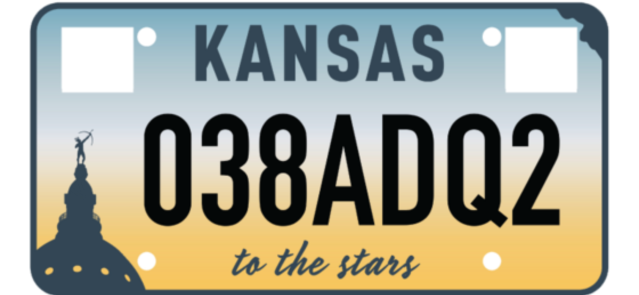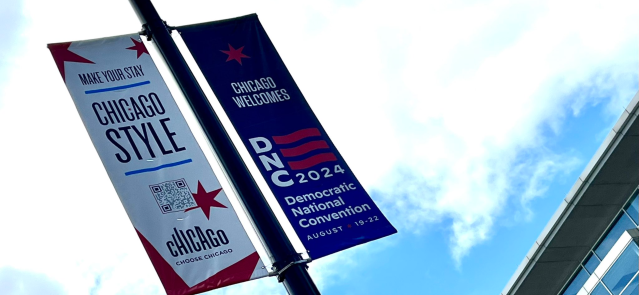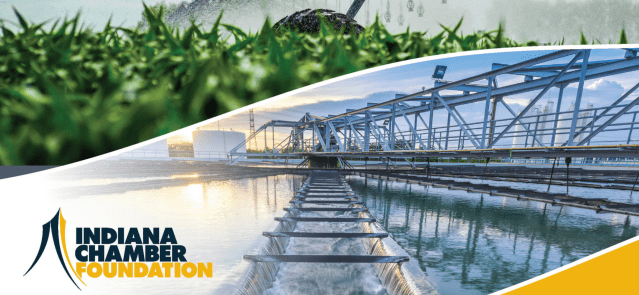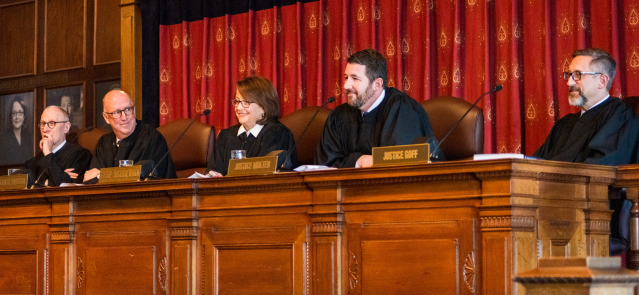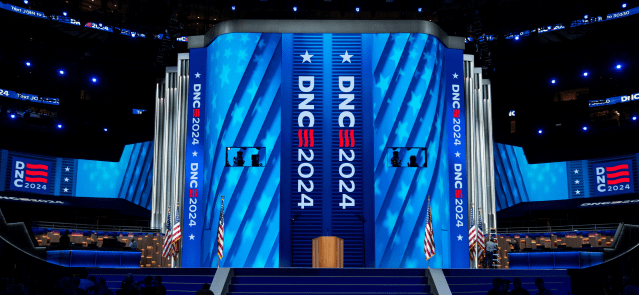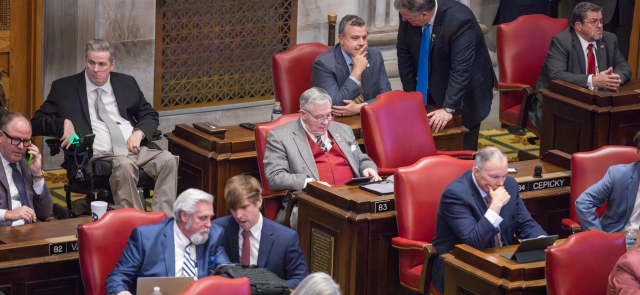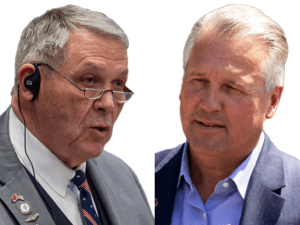CHICAGO — When President Biden gives his political farewell address tonight at the Democratic National Convention, he will do so as one of the least popular modern commanders-in-chief from the Hoosier perspective.
But when it comes to the economic data sets, the notion of presiding over a robust economy while bringing billions of dollars to the state seemed to be consigned to a relic of a bygone era.
Biden dropped out of the 2024 presidential race on July 21, setting up this week’s DNC as the first time a nonincumbent nominee — Vice President Kamala Harris — becomes the standard-bearer since President Lyndon B. Johnson gave way to Vice President Hubert Humphrey in 1968.
In a Ball State/Bowen Center poll released in January, just 35.3% of Hoosier respondents approved of the job Biden was doing, compared with 58.2% who disapproved.
“Many national polls have found that President Biden is not popular right now and, given he lost Indiana by a large margin in 2020, it is not surprising that he remains unpopular in the state,” said Chad Kinsella, director of the Bowen Center for Public Affairs.
Biden has never been popular in Indiana. Though he defeated President Donald J. Trump nationally in 2020, he lost Indiana 57.02% to 40.96%.
The economic data during Biden’s three-plus years in office tells a different story. Last week, Indiana’s unemployment rate increased to 4%, the first time it was over that threshold since September 2021. The state’s unemployment rate was 4.7% in January 2021 when Biden took office; it was as low as 3.1% in December 2022.
Then there are the billions of dollars that have flowed into the state via signature Biden agenda items: the Infrastructure and Jobs Act, the American Rescue Plan, the Inflation Reduction Act, and the CHIPS and Science Act. While Republican Sen. Todd Young was a driving force behind the CHIPS and Science Act, it was opposed by most of his GOP congressional colleagues.
In June 2022, U.S. Secretary of Commerce Gina Raimondo notified Gov. Eric Holcomb that Indiana would receive $868 million to extend high-speed internet to the proverbial “last mile” in rural Indiana.
Biden signed the CHIPS and Science Act in August 2022. Sen. Young noted that since the legislation was signed into law, the semiconductor industry has announced more than $240 billion in private sector investment for Indiana in the production of foundational and leading-edge microchips.
“The CHIPS and Science Act also established the Microelectronic Commons program, under which my state of Indiana has been designated the leader of the Silicon Crossroads Microelectronics Hub,” Young said in a March news release. “This regional partnership was designed to accelerate the prototyping of advanced microchips. This and other partnerships have already drawn more than $2 billion in publicly announced private investments into the state of Indiana alone.
“Great things are being made in Indiana thanks to the passage of the CHIPS and Science Act,” Young said.
Then there is the Bipartisan Infrastructure Law, where Indiana is expecting $6.9 billion over five years in federal highway formula funding for highways and bridges.
With the 2021 American Rescue Plan as part of COVID-19 pandemic relief, Indiana saw the following:
- $500 million in the first round of the Regional Economic Acceleration and Development Initiative (READI), which has generated billions of dollars in additional investments. That has funded a signature program by Gov. Holcomb and General Assembly Republicans, though most at the congressional level voted against the American Rescue Plan.
- Direct pandemic recovery funds benefited all 625 Indiana towns, cities and counties — avoiding cuts and adding investments in public safety, housing, workforce development and other critical areas.
- More than 280 school districts in Indiana were provided funding to support academic recovery and student mental health and reopen safely.
- 3,270 child care programs in Indiana received support to help keep their doors open, impacting some 157,000 children.
- Working family tax relief through the expanded child tax credit totaled 822,000 for Indiana families with 1.4 million children.
- 1,188 Indiana restaurants received vital relief through the American Rescue Plan’s Restaurant Revitalization Fund.
- A record 170,000 new small-business applications were submitted in Indiana.
Many Republicans cite the high inflation rate with Biden at the helm as a political liability, but the U.S. inflation rate declined significantly from a peak of 9.1% in June 2022 to 3% in June 2024.
And, according to analysis from U.S. Bank, the stock markets have all trended higher, though with significant volatility. The “benchmark S&P 500 generated impressive returns of 28.7% in 2021 and 26.29% in 2023,” U.S. Bank observed. “Sandwiched in between was a bear market, as the S&P 500, at its low point, dropped 25% in 2022. 2023’s stock market recovery was narrower in nature, driven primarily by a small group of S&P 500 sectors. In 2024, the S&P 500 repeatedly reached new all-time highs.”
Meanwhile, consumers have faced headwinds from Federal Reserve monetary policy, which featured significant interest rate hikes. “The Fed pursued this strategy to combat higher inflation that emerged in 2021,” U.S. Bank analyzed. “Through most of that period, the economy — as measured by Gross Domestic Product — has grown, though the pace of growth slowed in 2024’s first quarter.”
Axios observed on July 14: “If you spend your life looking at economic data, these look like the best of times: Inflation is a mere 3%. Unemployment is hovering near 50-year lows. But that’s not how the bulk of Americans see it. Americans’ views of the economy are colored by their politics as much as the actual state of the economy.”
Ditto for most Hoosiers.
DNC notes
Also on tonight’s DNC speaking bill are United Auto Workers President Shawn Fain, Chicago Mayor Brandon Johnson, first lady Jill Biden, and former first lady and Secretary of State Hillary Rodham Clinton. She lost to Trump in 2016.
On Tuesday, former President Barack Obama, former first lady Michelle Obama, second gentleman Doug Emhoff and Illinois Gov. J.B. Pritzker will speak in prime time. Both Obamas and Hillary Clinton are Chicago natives.
On Wednesday, U.S. Transportation Secretary Pete Buttigieg, Minnesota Gov. Tim Walz, Speaker Emerita Nancy Pelosi and former President Bill Clinton are scheduled to give prime-time addresses.
On Thursday, Vice President Kamala Harris will accept the Democratic presidential nomination under the theme “For Our Future.”
Brian A. Howey is senior writer and columnist for Howey Politics Indiana/State Affairs. Find Howey on Facebook and X @hwypol.

